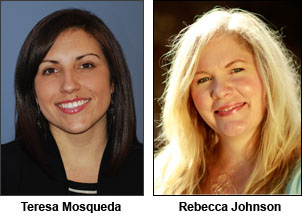OPINION
Olympia hearing reinforces importance of Unemployment Insurance ‘lifeline’
By TERESA MOSQUEDA and REBECCA JOHNSON
 On Monday, July 23, Rep. Mike Sells (D-Everett) and Sen. Jeanne Kohl-Welles (D-Seattle) held a Joint Committee work session on this decade’s epidemic: unemployment.
On Monday, July 23, Rep. Mike Sells (D-Everett) and Sen. Jeanne Kohl-Welles (D-Seattle) held a Joint Committee work session on this decade’s epidemic: unemployment.
The Washington State Labor Council shared our video (above) of workers’ stories about searching for work and the impact being unemployed has had on their lives and their families.
University of Washington Professor Dr. James Gregory commended the committee for “breaking the Great Silence” of unemployed workers whose voices have been largely ignored by federal lawmakers and mainstream media. Click here and here to see and hear additional video testimony from unemployed workers in Washington discussing how important the Unemployment Insurance safety net is to our families and our economy.
The workers who came to the hearing spoke for so many who could not be there: Unemployment Insurance is a true lifeline. Unemployment benefits go right back into local communities. Families rely on this UI for groceries, rent, transportation — essentials that literally keep people alive while searching for work. And in their voices, we heard the psychological and emotional toll of struggling to keep their families together. As one worker said, “Love goes out the window when you can’t put food on your family’s table.”
The American Dream is in serious trouble. Even for families blessed enough to have a job in this recession, the dream is fading, as hours and wages are cut. A recent Federal Reserve study found the median household net worth has dropped almost 40% since 2007.
At 8.3% unemployment, according to the Employment Security Department, almost 1 out of every 12 workers in this state cannot find a job. This percentage more than doubles when including workers who cannot find a job, are involuntarily working part time, and are considered marginally attached to the workforce. And a shocking one-third of all the jobs lost during the Great Recession have come from the building and construction trades, where the rate of unemployment is up to 60% in certain regions of the state.
Impending Crisis
 As of June 2012, more than 102,000 Washington workers have completely exhausted their unemployment benefits — of these, 75% are still out of work because there simply are no jobs. And it gets worse: if Congress fails to extend UI benefits before the end of the year, all unemployed workers on extensions will immediately stop receiving benefits. ESD expects that between 40,000 and 60,0000 Washington workers will hurtle off this cliff.
As of June 2012, more than 102,000 Washington workers have completely exhausted their unemployment benefits — of these, 75% are still out of work because there simply are no jobs. And it gets worse: if Congress fails to extend UI benefits before the end of the year, all unemployed workers on extensions will immediately stop receiving benefits. ESD expects that between 40,000 and 60,0000 Washington workers will hurtle off this cliff.
Monday’s work session was an opportunity for leaders and policy makers to put themselves in the shoes of unemployed workers. The solution is not to cut workers benefits or decrease the minimum wage in a race to the bottom. The solution is not to implement a “training wage” and pay less than minimum wage to young workers, as these are the very workers who have experienced the highest rates of unemployment during this Great Recession.
This year, our state took a big step forward in creating jobs and investing in public infrastructure — we need to continue to think big and take bold action to protect our UI safety net and create jobs to get our economy unstuck and get workers back to work.
Teresa Mosqueda is Legislative and Policy Director and Rebecca Johnson is Government Affairs Director for the Washington State Labor Council, AFL-CIO.





